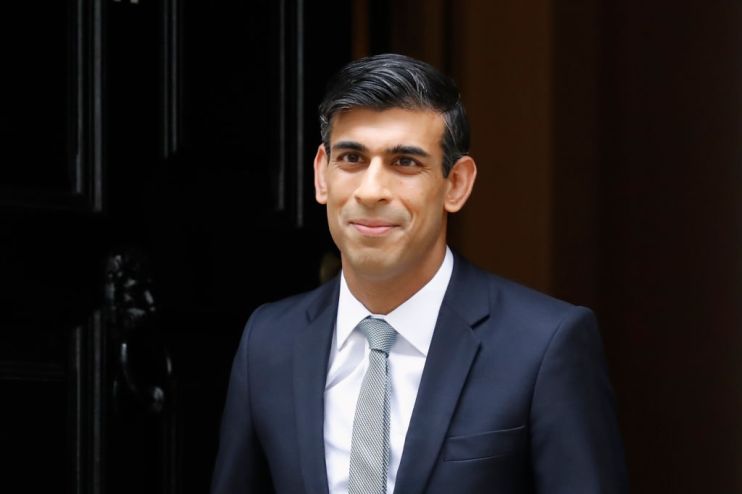New job retention bonus at heart of Rishi Sunak’s £30bn spending spree

UK chancellor Rishi Sunak today put a new “job retention bonus” programme to encourage companies to bring back furloughed workers at the centre of a £30bn package aimed at kickstarting the economy.
In his summer statement, Sunak said employers who take back furloughed workers until the end of January will receive a £1,000 payment for each employee. It was part of a wide-ranging “plan for jobs” that also put money towards apprenticeships and training.
Read more: Sunak slashes VAT on hospitality and tourism to five per cent
The bigger-than-expected fiscal stimulus package could be worth up to £30bn, depending on uptake. It will take the government’s total spending on the coronavirus crisis to around £190bn.
Sunak also slashed VAT for the hospitality and tourism sectors to five per cent from 20 per cent for the next six months. On top of this, he announced a voucher which will provide a 50 per cent discount for eating out in August.
And he announced an immediate stamp duty holiday for the property sector. It will lift the payment threshold to £500,000 from the current £125,000 level.
The government’s current job retention scheme has supported more than 9m people who were otherwise in danger of being laid off. It has cost tens of billions of pounds.
But Sunak said it must end in October. Companies will be expected to chip in to the scheme from August.
“Calling for endless extensions to the furlough is just as irresponsible as it would have been back in June to end the scheme overnight,” he said.
Job retention bonus aims to ease employment woes
Sunak laid bare the challenges threatening the economy. He said that in two months the UK economy contracted by 25 per cent, the same amount it grew in the previous eight years.
The chancellor, who only took the helm at the Treasury in February, said the new job retention bonus scheme seeks to ease the pain expected when the job retention scheme ends.
He said employees returning to work under the job retention bonus scheme “need to be doing decent work”. They will have to earn on average at least £520 per month between the end of the job retention scheme and the end of January 2021.
“We will pay the bonus for all furloughed employees,” Sunak said. “So if employers bring back all 9m people who have been furloughed, this would be a £9bn policy to retain people in work.”
The chancellor confirmed the already announced ‘kickstarter scheme’ to create hundreds of thousands of six-month work placements for young people.
The £2bn scheme will cover 100 per cent of the employee’s national minimum wage for 25 hours a week as well as national insurance contributions. Sunak said it will “directly pay employers to create new jobs”.
He also confirmed a £111m programme to triple traineeships. They last from six weeks to six months and provide maths, English and CV writing training and a work placement.
On top of this, Sunak announced the government will “pay employers to create new apprenticeships”.
UK firms will be paid £1,000 for each new apprentice they hire aged under 25 from August until the end of January. They will receive £1,500 for each new apprentice aged 25 and over.
Labour says sectors need specific support
Yet Labour shadow chancellor Anneliese Dodds said the overall package did not go far enough. She said “many of the big decisions” had been “put off until later”. The chancellor will give a full Budget in the autumn.
Dodds said: “The chancellor still needs to abandon his one-size-fits-all approach to withdrawing the job retention and self employed schemes.”
She said the scheme must support jobs “in industries that are viable in the long-term”.
Carolyn Fairbairn, director-general of the CBI, called the jobs plan “an important step forward”. She said: “For young people, the kickstarter scheme will help create jobs in the short-run that can turn into opportunities for the long-run.”
Read more: Rishi Sunak Summer Statement LIVE: VAT for hospitality and tourism cut from 20 to 5 per cent
Yet she called for more immediate help. “With nearly 70 per cent of firms running low on cash, and three in four reporting lack of demand, more immediate direct support for firms, from grants to further business rates relief, is still urgently needed.”
Yael Selfin, chief economist at KPMG, said more action will be needed to reskill workers. “A £30bn package to help secure jobs is welcome, but more efforts should be directed at creating a national training scheme to equip the rising number of unemployed for future jobs,” she said.